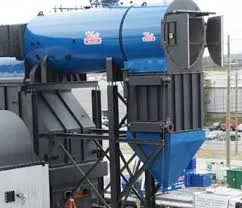- Afrikaans
- Albanian
- Amharic
- Arabic
- Armenian
- Azerbaijani
- Basque
- Belarusian
- Bengali
- Bosnian
- Bulgarian
- Catalan
- Cebuano
- China
- China (Taiwan)
- Corsican
- Croatian
- Czech
- Danish
- Dutch
- English
- Esperanto
- Estonian
- Finnish
- French
- Frisian
- Galician
- Georgian
- German
- Greek
- Gujarati
- Haitian Creole
- hausa
- hawaiian
- Hebrew
- Hindi
- Miao
- Hungarian
- Icelandic
- igbo
- Indonesian
- irish
- Italian
- Japanese
- Javanese
- Kannada
- kazakh
- Khmer
- Rwandese
- Korean
- Kurdish
- Kyrgyz
- Lao
- Latin
- Latvian
- Lithuanian
- Luxembourgish
- Macedonian
- Malgashi
- Malay
- Malayalam
- Maltese
- Maori
- Marathi
- Mongolian
- Myanmar
- Nepali
- Norwegian
- Norwegian
- Occitan
- Pashto
- Persian
- Polish
- Portuguese
- Punjabi
- Romanian
- Russian
- Samoan
- Scottish Gaelic
- Serbian
- Sesotho
- Shona
- Sindhi
- Sinhala
- Slovak
- Slovenian
- Somali
- Spanish
- Sundanese
- Swahili
- Swedish
- Tagalog
- Tajik
- Tamil
- Tatar
- Telugu
- Thai
- Turkish
- Turkmen
- Ukrainian
- Urdu
- Uighur
- Uzbek
- Vietnamese
- Welsh
- Bantu
- Yiddish
- Yoruba
- Zulu
Νοέ . 27, 2024 16:48 Back to list
Understanding the Benefits and Applications of Cast Iron Soil Pipes in Modern Plumbing Systems
The Enduring Legacy of Cast Iron Soil Pipes
Cast iron soil pipes represent a remarkable achievement in the evolution of plumbing technology, offering both durability and functionality that few materials can match. Used primarily for the conveyance of sewage and waste, these pipes have been a critical component in municipal sanitary systems since their introduction in the 19th century. Understanding the significance of cast iron soil pipes calls for an exploration of their history, advantages, and contemporary relevance.
Historically, cast iron has been employed in various applications due to its strength and resilience. The use of cast iron for plumbing emerged in the late 1800s, aligning with the industrial revolution's push for improved public health and sanitation. As urban populations swelled, so did the need for effective waste management systems. Cast iron soil pipes provided a solution, allowing for the efficient transport of wastewater away from homes and businesses. Their thick walls and robust construction made them ideal for underground installations, capable of withstanding the pressures of soil and water while preventing leaks and contamination.
One of the most significant advantages of cast iron soil pipes is their durability. These pipes were designed to last for decades, or even centuries, with proper maintenance. Unlike plastic alternatives, which can become brittle and degrade under UV light or extreme temperatures, cast iron resists corrosion and physical damage. This longevity translates to lower replacement costs and reduced environmental impact, as fewer resources are consumed in the production and disposal of pipes.
cast iron soil pipe

Moreover, cast iron has excellent sound-dampening properties. In urban areas where noise pollution is a concern, the thick walls of cast iron pipes help significantly reduce the sound of flowing water and waste, making them an attractive option for residential buildings. This aspect has assured their continued use in both new constructions and renovations, especially in multi-family units where quiet enjoyment is a priority.
However, cast iron soil pipes are not without their challenges. The installation process is labor-intensive and requires skilled labor to ensure proper connections and alignment. In addition, while cast iron is resistant to many forms of corrosion, it can be susceptible to rusting over time if not properly maintained. This has led to the emergence of alternative materials, such as PVC and ABS, which are lighter and easier to install. Nonetheless, many builders and contractors remain steadfast in their preference for cast iron, given its proven performance and reliability.
Today, cast iron soil pipes continue to be a favored choice for plumbing systems in both residential and commercial properties. Advances in manufacturing techniques have further enhanced their performance, with modern cast iron pipes often featuring protective coatings that improve resistance to corrosion and extend their lifespan. Furthermore, the growing emphasis on sustainable building practices has rekindled interest in materials like cast iron, which can be recycled at the end of their life cycle, reducing waste and conserving resources.
In conclusion, the significance of cast iron soil pipes in plumbing cannot be overstated. Their historical importance, unparalleled durability, noise reduction capabilities, and the modern advancements in their manufacturing all contribute to their ongoing relevance in today’s construction and renovation projects. As we continue to seek effective solutions for urban sanitation, the legacy of cast iron pipes remains firmly embedded in our infrastructure, proving that sometimes, the old ways still offer the best solutions.
-
Durable Cast Iron Water Main Pipe | AI-Optimized Design
NewsAug.05,2025
-
8mm Thin-Walled Cast Steel Manhole Cover Pallet Bottom Ring | Durable
NewsAug.04,2025
-
Premium Cast Iron Water Main Pipe: Durable, Corrosion-Resistant
NewsAug.03,2025
-
Durable Cast Iron Water Mains | AI-Optimized Systems
NewsAug.02,2025
-
High-Efficiency Propane Boiler for Baseboard Heat | Save Energy
NewsAug.01,2025
-
Premium Source Suppliers for Various Gray Iron Castings
NewsJul.31,2025


